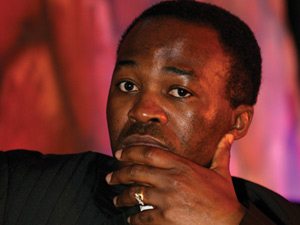
PROMINENT among the Angolan delegates at this year’s Mining Indaba is Jacinto Rocha – former deputy director-general of South Africa’s then Department of Mineral Resources (DMR) and now CEO of Angola’s National Agency for Mineral Resources (NAMR).
In that position he is responsible for the regulation of Angola’s mining industry as well as promoting that industry to new investors. It seems he is doing a great job judging by the presentations made at a two hour Angolan investment seminar.
The irony of the situation is that the rules and regulations he is promoting for investment by mining companies into Angola are far more private sector friendly than the policies he enthusiastically enforced from 2005 in South Africa when the Minerals and Petroleum Resources Development Act (MPRDA) was introduced.
A huge difference is that in Angola there are no black economic empowerment (BEE) requirements for mining companies which is a key aspect of the South African legislation that government and the mining companies have been feuding over since 2005.
Rocha’s tough interpretation of those BEE laws earned him a reputation as an uncompromising “hard-line Angolan Marxist” from many South African mining executives.
Interviewed by Miningmx, Rocha rejects this characterisation commenting: “It was not personal because I was just doing the job. In South Africa I was implementing the BEE policy laid out by the South African government for the mining industry and, in Angola, I am implementing the policy laid down by the Angolan government.”
Rio Tinto went back into Angola prospecting for diamonds in October last year to be followed by De Beers which in April announced it had signed two mineral investment contracts with the Angolan government.
But today’s presentations revealed it’s not just diamonds that Anglo American is after in Angola because the group is exploring for copper and nickel there as well in a potential diversification from its major South American copper mining interests.
According to Anglo American head of government relations, Richard Morgan, Anglo American has just carried out two of its largest ever geophysical exploration programmes on two copper/nickel prospects in Angola – the 20,000 square kilometre Moxico project and the 30,000km² Cunene project.
Morgan commented that “… it helps that the Angolan government keeps materially out of the mining industry”.
Unexplored
Rocha says he has not actually returned to Angola – where he was born – but is working there on a five year renewable contract. He remains a South African citizen while his family is still resident in South Africa and he continues to lecture on mining law at the University of the Witwatersrand.
He accepted the position in Angola because he was “invited by the Angolan government” to do so while he was working as a mining consultant after leaving the DMR.
“I took the job for the challenge of helping them restructure the sector because of my experience. We now have a positive, welcoming attitude to investors and the new government has taken a very hard stance against corruption.
“The mining companies coming back can see that government now practices what it preaches. It does not say one thing and so something else.”
Asked whether a mining company looking at making a new investment should go to South Africa or Angola Rocha replied: “It’s difficult to compare but Angola has much bigger mineral potential.
“Apart from diamonds we have not been mining in the country for more than 100 years. In the other commodities we are new. In terms of government approach Angola is very positive and it is very welcoming. Government is not involved in the running of mining businesses. We want to do the best we can to improve the quality of life for Angolans.”
Rocha declines to be drawn over his views on South Africa’s approach to new mining investment. “Angola is focused on Angola.”
“The histories of the two countries are completely different. There is no need for BEE in Angola because there was no apartheid in Angola.”











